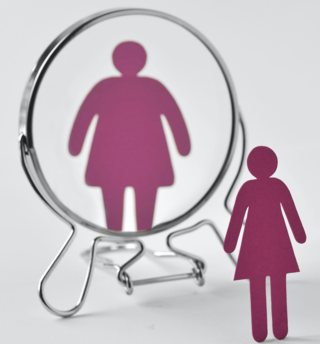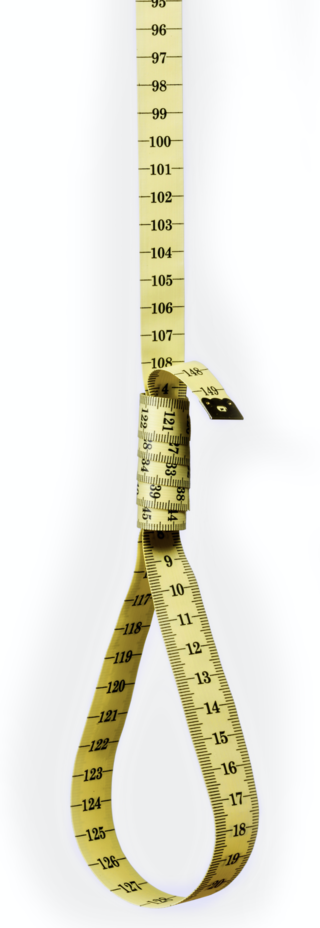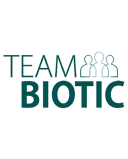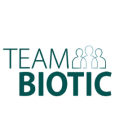Anorexia Nervosa
Anorexia Nervosa: Addressing the Bugs in the System
Gut microbiome manipulation may prove therapeutically valuable.
Posted November 21, 2022 Reviewed by Hara Estroff Marano
Key points
- Anorexia nervosa is one of the most chronic health conditions affecting adolescent females.
- Anorexia nervosa diagnoses are on the rise.
- Dysregulation of the gut-brain axis and immune system are considered causative.
- Targeted probiotic support may prove therapeutically valuable in the treatment of anorexia.
By: Michelle Maddux, ND
The Burden of Anorexia

Across the globe, anorexia nervosa (AN) is an eating disorder that ranks as one of the most common chronic health conditions impacting adolescent females, with incidence on the rise.1 AN is characterized by a refusal to maintain a normal body weight resulting in low body weight, intense fear of gaining weight, and distorted body image.2 It can be of the restricting type (AN-R), characterized by an aversion to taking in enough calories to meet basic requirements, resulting in significantly low body weight, or binge-eating/purge type (AN-BP), characterized by restricted eating alternated with binge eating and/or purging.
Both types are often coupled with excessive exercising as a way to maintain low body fat and weight.3 Anorexia nervosa has one of the highest mortality rates of any psychiatric condition, coupled with poor response to therapeutic interventions and high incidences of relapse.1,4,5 It is therefore increasingly considered a multifactorial, metabopsychiatric disorder.6
Exploring Root Cause
Historically, there has been a poor understanding of the etiology of AN, although more recent studies have begun to tease out contributing factors, including genetics.6 However, there are still many unanswered questions about this disorder.
One of the areas showing great promise for understanding root cause as well as identifying effective treatment is the gut microbiome and the gut-brain axis.4,5,6 The gut microbiome in AN patients shows alterations, especially in overall microbe diversity and abundance, that do not renormalize with healthy weight gain4,7 alone. These alterations can lead to increased gut permeability, often referred to as "leaky gut." Intestinal hyperpermeability allows toxic bacterial byproducts to enter circulation. This leads to an inflammatory response, including neuroinflammation and activation of the hypothalamic-pituitary axis, which is exacerbated by the increased stress and cortisol levels commonly found in AN patients.4,6,8
Another aspect of AN includes changes in the feeling of fullness or satiety. As such, those with anorexia feel full significantly sooner than their healthy counterparts.3 Moreover, early satiety has been associated with a skewing of the gut microbiome, particularly imbalances in Bacteroidetes, Lactobacillus, and Enterobacteriaceae.5,8 These bacteria can influence hormones such as leptin, which is normally low in starvation, as it is a hunger inhibitor, and ghrelin, typically elevated in starvation, as it triggers hunger.5,8
Additionally, short chain fatty acids (SCFAs), which are produced by the microbial degradation of resistant starches (predominantly dietary fiber), can trigger release of peptides associated with satiety.8 When the gut microbiome is altered, the balance of SCFAs produced in the gut is skewed.8 Skewed SCFA balance can result in alteration of satiety hormones and therefore appetite, GI transit time, and mood.4
Gut-Brain Axis Modulation: A Promising Approach

A common feature of AN are elevations in cortisol4,8, which are associated with anxiety, depression, impaired sleep, as well immune system dysregulation.4,9 A clinical study currently in progress is evaluating the therapeutic value of a targeted probiotic blend to address these features of anorexia nervosa.10 While the results of the study are not yet released, the preliminary data is promising. This particular probiotic blend (Lactobacillus casei W56, Lactococcus lactis W19, Lactobacillus acidophilus W22, Bifidobacterium lactis W52, Lactobacillus paracasei W20, Lactobacillus plantarum W62, Bifidobacterium lactis W51, Bifidobacterium bifidum W23, Lactobacillus salivarius W24)11 was previously shown to improve depressive mood and positive disposition, while reducing ruminative thinking. These self-reported improvements where also validated by shifts in brain activity confirmed by functional magnetic resonance imaging (fMRI).12,13
Final Thoughts
Anorexia nervosa is not a condition rooted in vanity. It is self-starvation. This is a metabo-psychiatric disorder that has severe, prolonged, and often dire impacts on a person’s health.6 Given that it is a multifactorial disease, it makes sense that treatments ideally also influence multiple systems, making targeted probiotic therapies a promising approach.
References
1. Gröbner EM, Zeiler M, Fischmeister FPS, Kollndorfer K, Schmelz S, Schneider A, Haid-Stecher N, Sevecke K, Wagner G, Keller L, Adan R, Danner U, van Elburg A, van der Vijgh B, Kooij KL, Fetissov S, Andreani NA, Baines JF, Dempfle A, Seitz J, Herpertz-Dahlmann B, Karwautz A. The effects of probiotics administration on the gut microbiome in adolescents with anorexia nervosa-A study protocol for a longitudinal, double-blind, randomized, placebo-controlled trial. Eur Eat Disord Rev. 2022 Jan;30(1):61-74. doi: 10.1002/erv.2876. Epub 2021 Nov 30. PMID: 34851002; PMCID: PMC9300207.
2. Substance Abuse and Mental Health Services Administration. DSM-5 Changes: Implications for Child Serious Emotional Disturbance [Internet]. Rockville (MD): Substance Abuse and Mental Health Services Administration (US); 2016 Jun. Table 19, DSM-IV to DSM-5 Anorexia Nervosa Comparison. Available from: https://www.ncbi.nlm.nih.gov/books/NBK519712/table/ch3.t15/
3. Dhopatkar, Namrata & Keeler, Johanna & Mutwalli, Hiba & Whelan, Kevin & Treasure, Janet & Himmerich, Hubertus. (2022). Gastrointestinal symptoms, gut microbiome, probiotics and prebiotics in Anorexia Nervosa: a review of mechanistic rationale and clinical evidence. Psychoneuroendocrinology. 147. 105959. 10.1016/j.psyneuen.2022.105959.
4. Herpertz-Dahlmann B, Seitz J, Baines J. Food matters: how the microbiome and gut-brain interaction might impact the development and course of anorexia nervosa. Eur Child Adolesc Psychiatry. 2017 Sep;26(9):1031-1041. doi: 10.1007/s00787-017-0945-7. Epub 2017 Jan 31. PMID: 28144744; PMCID: PMC5591351.
5. Ruusunen A, Rocks T, Jacka F, Loughman A. The gut microbiome in anorexia nervosa: relevance for nutritional rehabilitation. Psychopharmacology (Berl). 2019 May;236(5):1545-1558. doi: 10.1007/s00213-018-5159-2. Epub 2019 Jan 5. PMID: 30612189; PMCID: PMC6598943.
6. Ghenciulescu A, Park RJ, Burnet PWJ. The Gut Microbiome in Anorexia Nervosa: Friend or Foe? Front Psychiatry. 2021 Jan 12;11:611677. doi: 10.3389/fpsyt.2020.611677. PMID: 33510660; PMCID: PMC7835121.
7. Gröbner EM, Zeiler M, Fischmeister FPS, Kollndorfer K, Schmelz S, Schneider A, Haid-Stecher N, Sevecke K, Wagner G, Keller L, Adan R, Danner U, van Elburg A, van der Vijgh B, Kooij KL, Fetissov S, Andreani NA, Baines JF, Dempfle A, Seitz J, Herpertz-Dahlmann B, Karwautz A. The effects of probiotics administration on the gut microbiome in adolescents with anorexia nervosa-A study protocol for a longitudinal, double-blind, randomized, placebo-controlled trial. Eur Eat Disord Rev. 2022 Jan;30(1):61-74. doi: 10.1002/erv.2876. Epub 2021 Nov 30. PMID: 34851002; PMCID: PMC9300207.
8. Seitz J, Belheouane M, Schulz N, Dempfle A, Baines JF, Herpertz-Dahlmann B. The Impact of Starvation on the Microbiome and Gut-Brain Interaction in Anorexia Nervosa. Front Endocrinol (Lausanne). 2019 Feb 12;10:41. doi: 10.3389/fendo.2019.00041. PMID: 30809191; PMCID: PMC6379250.
9. Fiksdal A, Hanlin L, Kuras Y, Gianferante D, Chen X, Thoma MV, Rohleder N. Associations between symptoms of depression and anxiety and cortisol responses to and recovery from acute stress. Psychoneuroendocrinology. 2019 Apr;102:44-52. doi: 10.1016/j.psyneuen.2018.11.035. Epub 2018 Nov 24. PMID: 30513499; PMCID: PMC6420396.
10. Gröbner EM, Zeiler M, Fischmeister FPS, Kollndorfer K, Schmelz S, Schneider A, Haid-Stecher N, Sevecke K, Wagner G, Keller L, Adan R, Danner U, van Elburg A, van der Vijgh B, Kooij KL, Fetissov S, Andreani NA, Baines JF, Dempfle A, Seitz J, Herpertz-Dahlmann B, Karwautz A. The effects of probiotics administration on the gut microbiome in adolescents with anorexia nervosa-A study protocol for a longitudinal, double-blind, randomized, placebo-controlled trial. Eur Eat Disord Rev. 2022 Jan;30(1):61-74. doi: 10.1002/erv.2876. Epub 2021 Nov 30. PMID: 34851002; PMCID: PMC9300207.
12. Bagga D, Reichert JL, Koschutnig K, Aigner CS, Holzer P, Koskinen K, Moissl-Eichinger C, Schöpf V. Probiotics drive gut microbiome triggering emotional brain signatures. Gut Microbes. 2018 Nov 2;9(6):486-496. doi: 10.1080/19490976.2018.1460015. Epub 2018 Jun 14. PMID: 29723105; PMCID: PMC6287679.
13. Bagga D, Aigner CS, Reichert JL, Cecchetto C, Fischmeister FPS, Holzer P, Moissl-Eichinger C, Schöpf V. Influence of 4-week multi-strain probiotic administration on resting-state functional connectivity in healthy volunteers. Eur J Nutr. 2019 Aug;58(5):1821-1827. doi: 10.1007/s00394-018-1732-z. Epub 2018 May 30. PMID: 29850990; PMCID: PMC6647073.


